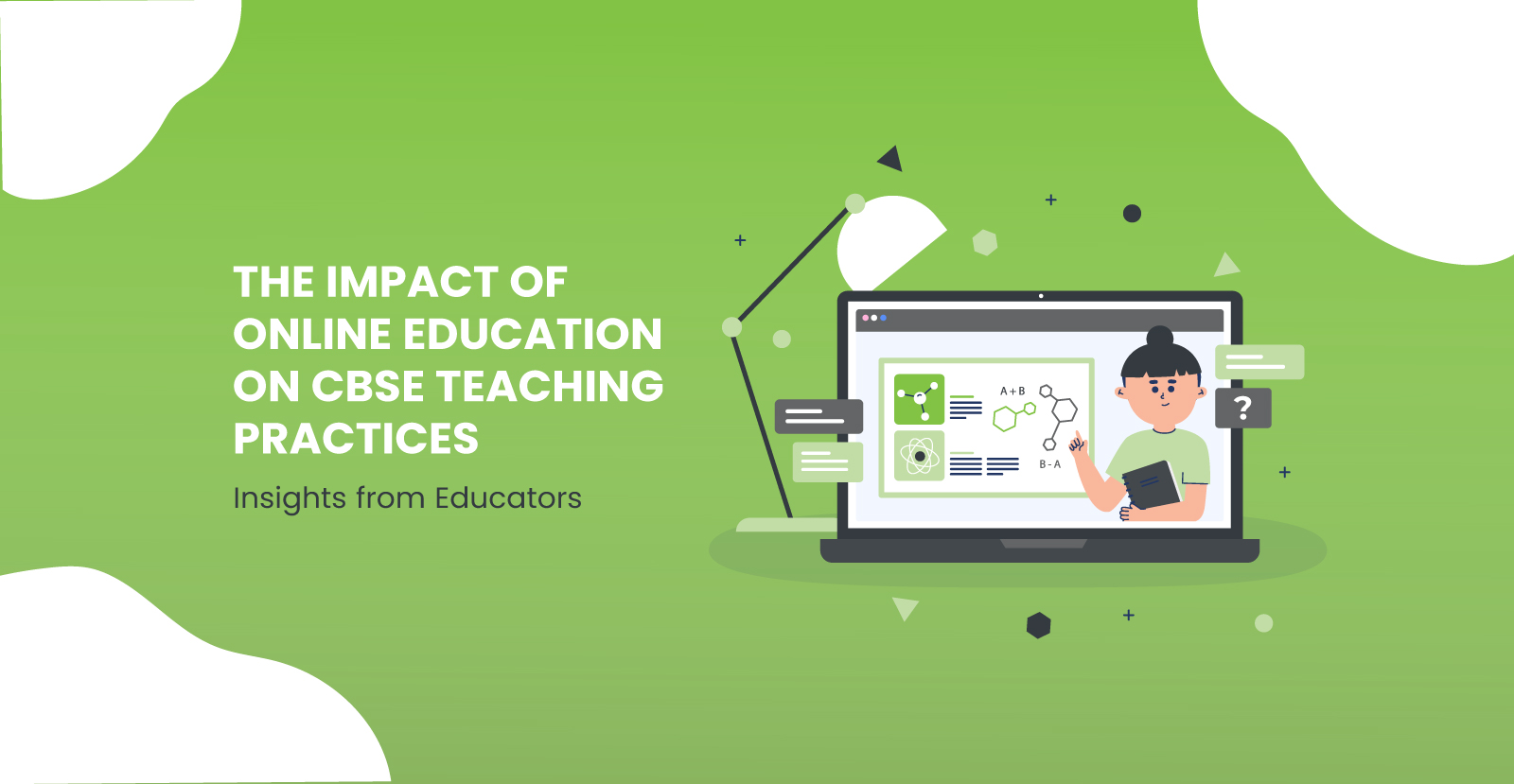
The Impact of Online Education on CBSE Teaching Practices: Insights from Educators
In recent years, the landscape of education has undergone significant transformations, propelled by the relentless march of digital technology. Central Board of Secondary Education (CBSE) schools have not been immune to these changes. The shift towards online education has redefined teaching methodologies, teacher-student interactions, and the overall educational environment.
This blog post delves into the profound impact of online education on CBSE teaching practices, drawing on insights from seasoned educators who are navigating this new terrain.
Rethinking Teaching Methodologies
The integration of online education has prompted CBSE educators to rethink their teaching methodologies. Traditional classroom settings emphasized a teacher-centered approach, but the digital environment facilitates a more student-centered learning process. Interactive platforms, digital simulations, and virtual laboratories now complement textbook teachings, allowing for a richer, more diverse educational experience.
Dr. Anjali Sharma, a CBSE curriculum expert with over a decade of experience in educational technology, observes, “Online education has enabled personalized learning paths that are not feasible in a traditional classroom. Teachers can now provide real-time feedback and tailor their instruction to meet the individual needs of students, which was a logistical challenge before.”
Enhanced Resources and Tools
The transition to online education has unlocked access to a plethora of resources that were previously out of reach due to geographical and financial constraints. Teachers can now utilize global databases, online libraries, and expert talks from around the world to enhance their lessons. This access has dramatically broadened the scope of what can be taught under the CBSE framework.
“Utilizing tools like virtual reality to explain complex scientific concepts or historical events makes learning much more engaging and accessible,” states Mr. Vikram Bhatt, a physics teacher with a focus on innovative educational practices. “These tools allow students to explore scenarios and experiments that would be impossible in a conventional classroom.”
Training and Professional Development
Adapting to online education requires teachers to be proficient with digital tools and platforms. In response, CBSE has increased its focus on professional development and training workshops for teachers. These programs are designed to upskill teachers and ensure they are comfortable with new technologies and pedagogical strategies.
Ms. Geeta Rani, a teacher trainer specializing in online pedagogies, highlights the importance of this shift. “The continuous professional development sessions not only help teachers become adept at using technology but also encourage them to integrate these tools creatively into their teaching,” she notes.
Changes in Assessment Techniques
Online education has also transformed the approach to assessments within CBSE schools. Digital platforms offer innovative assessment tools that move beyond traditional paper-based tests, incorporating quizzes, interactive assignments, and peer-reviewed projects. This shift not only aligns with modern educational practices but also helps in catering to different learning styles and capabilities.
“Online assessments can be more dynamic and versatile. They allow for immediate feedback and iterative learning, which is crucial for student growth,” explains Mr. Suresh Kumar, an educator with expertise in curriculum development.
Challenges and Opportunities
While the shift towards online education offers numerous opportunities, it also presents challenges. Issues such as digital divide, student engagement, and maintaining academic integrity in online assessments are prominent. Educators need to be vigilant and innovative to address these challenges effectively.
Mrs. Lalitha Krishnan, a senior educator, adds, “Ensuring that every student has access to reliable internet and digital devices is crucial for the success of online education. Schools need to work in collaboration with government bodies to ensure that no student is left behind.”
Conclusion
The impact of online education on CBSE teaching practices is profound and multifaceted. It has necessitated an overhaul of traditional methodologies, ushered in advanced tools and resources, and required educators to enhance their skills continually. As educators adapt to these changes, the future of CBSE education looks promising, with an emphasis on inclusivity, accessibility, and innovation.
Incorporating insights from educators who are at the forefront of this transition not only sheds light on the practical implications of online education but also paves the way for further enhancements in teaching and learning practices. As we continue to navigate this digital era, the lessons learned and the strategies developed will undoubtedly shape the educational landscape for future generations.



